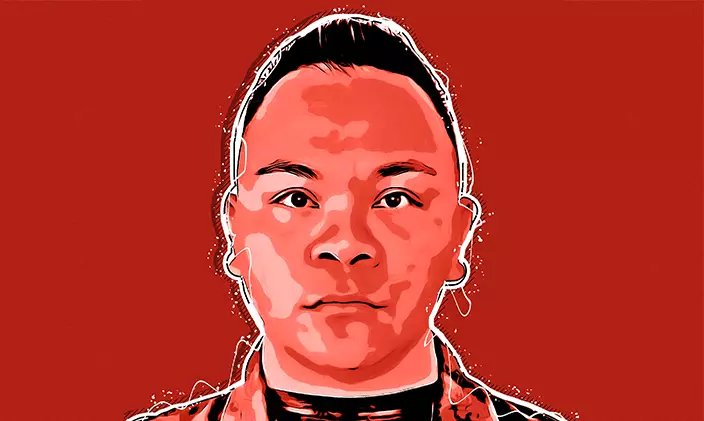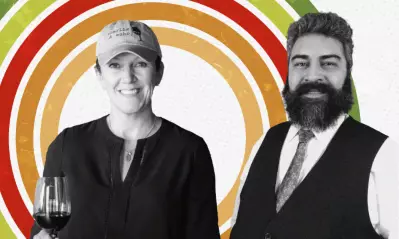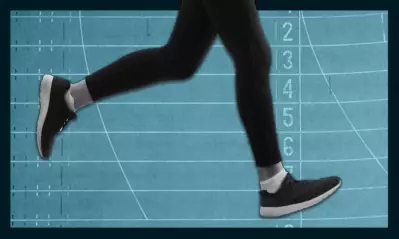Committed to giving veterans a voice

Written by Elizabeth Exline

Talk with Josh Guzon today, and you might not guess that he completed four deployments during his 10-year tenure with the U.S. Marine Corps. Or that he’s been, as he puts it, “blown up” seven times.
Guzon is direct, energetic and circumspect. He manages to oversee his son’s after-school routine while keeping an eye on work emails and chatting about his life experiences. He doesn’t just multitask. He orchestrates.
Guzon, in other words, has all the trademark strength of both a veteran and a University of Phoenix (UOPX) alumnus. And while his past has been punctuated by both triumph and tribulation, his future is informed by what he and others before him fought so hard to attain: an education.
From the Philippines to Afghanistan
Guzon immigrated to the United States from the Philippines when he was 7. “My family was pretty well educated and well off in the Philippines,” he explains. “We had the opportunity to come to America, and my mom wanted to make sure that my siblings and I were able to get a good education. That’s primarily why we came here.”
The family had settled in California by the time Guzon turned 18. Aware that he still had some growing up to do, and without a clear direction for where he wanted to take his career, Guzon joined the Marines.
He felt a sense of patriotism and duty to his adopted country, and the Marines turned out to be a good fit. He began to see himself as a leader, but this personal evolution came at a great cost. His vehicle exploded within 30 days of arriving in Afghanistan. After 90 days, he’d been through two more explosions.
In total, he counts seven explosions over 10 years of service, plus firefights and other action. The subsequent physical toll was profound. His traumatic brain injuries included diplopia (double vision), which put him and his fellow service members at risk in a military branch where, as he says, “everybody’s a rifleman.”
Guzon also began to experience post-traumatic stress disorder. “I was seeing myself and the events happening in third person,” he recalls.
All of this led to medical retirement by the time he was 28, but Guzon’s challenges were just beginning.
Struggles after the military
“The depression and anxiety really set in once I was separated from the military,” Guzon says, “because I was away from my support system.”
Other service members, Guzon explains, know the risks when they enlist, and they undergo the same experiences. “But your family didn’t sign up with you, so they don’t know the experiences. They don’t know the issues,” he says.
Guzon describes that period of his life as fractious and dark. “I was pretty crazy at that time,” he says. “I was hyperaggressive … and would snap in an argument just because I wouldn’t want to argue with my own wife and kids, because I already did that so much. It was just a constant.”
Guzon recognizes now how the very thing that enabled his survival in combat zones was also what paralyzed his relationships in a civilian setting. To complete a mission, you must remove fear. To remove fear, you must cut off your emotions. That disconnect translates to bravery in a war zone but emotional isolation at home.
“Suicide becomes an ideation because you don’t fear your own loss. You’ve already lost the emotional connection you’ve had to family, to your kids, to your friends,” he says.
Guzon grappled with this as he searched for purpose in his civilian life. After flirting with the idea of nursing, he decided to move instead toward a business degree, which he earned at UOPX.
His education was important in more ways than one. Guzon recognized he needed a bachelor’s degree to pursue the kind of career path he envisioned. But the setting mattered just as much. At UOPX, he connected with other veterans who formed a sort of support system for one another. Instructors understood the challenges faced by this community and helped accommodate them.
“It was great,” Guzon says. “It brought back that sense of comfort and support … [to be with] people who had the same shared experiences.”
Finding, and using, his voice for others
Today, Guzon is a marketing manager for a military-affiliated healthcare system and a vocal advocate for the university that helped him find a way forward in the civilian world. Here, he shares what he learned at UOPX, what motivates him and how he continues to pay forward the support he received while getting his degree.
How does UOPX accommodate military service members and veterans?
You have the quality of something (online learning) that’s been in place for decades, whereas other schools are just now learning how to get on Blackboard®.
Also, a large population of veterans have already gone to UOPX, so the support system is already in place. We’re not getting out at 25 and going into dorms. We already have financial obligations and family obligations, and most of the time we already have jobs.
So, the fact that UOPX lets veterans meet those responsibilities and further their education opens up opportunities to be more successful in the civilian world.
What’s your motivation to keep going?
Knowing that other veterans before me have worked this hard to get the opportunities that I have, it’s important to me that I further the benefits that veterans receive.
A lot of times, veterans don’t know what they really worked for. They don’t understand their own value in society. And what motivates me constantly is making sure I don’t have more friends who commit suicide.
How has mentorship impacted your life?
[A contact at UOPX offered] mentorship that led me to finishing my program and understanding that there was more to the value of me receiving my bachelor’s than utilizing it for myself. He taught me how to use my own experience and to voice it. So, his was the biggest mentorship on that next level of my life.
In addition to advocating for UOPX, how do you pay forward the investment of time and mentorship you’ve received in your life?
I would say that every time I speak to other veterans’ family members, I explain what those veterans’ issues are. It’s getting family members to understand the emotions veterans feel but don’t share. That can explain why veterans are the way they are and what family can do to help make them better.
GI Bill is a registered trademark of the U.S. Department of Veterans Affairs (VA). More information about education benefits offered by VA is available at the official U.S. government website at https://www.benefits.va.gov/gibill.

ABOUT THE AUTHOR
Elizabeth Exline has been telling stories ever since she won a writing contest in third grade. She's covered design and architecture, travel, lifestyle content and a host of other topics for national, regional, local and brand publications. Additionally, she's worked in content development for Marriott International and manuscript development for a variety of authors.
This article has been vetted by University of Phoenix's editorial advisory committee.
Read more about our editorial process.
Read more articles like this:


